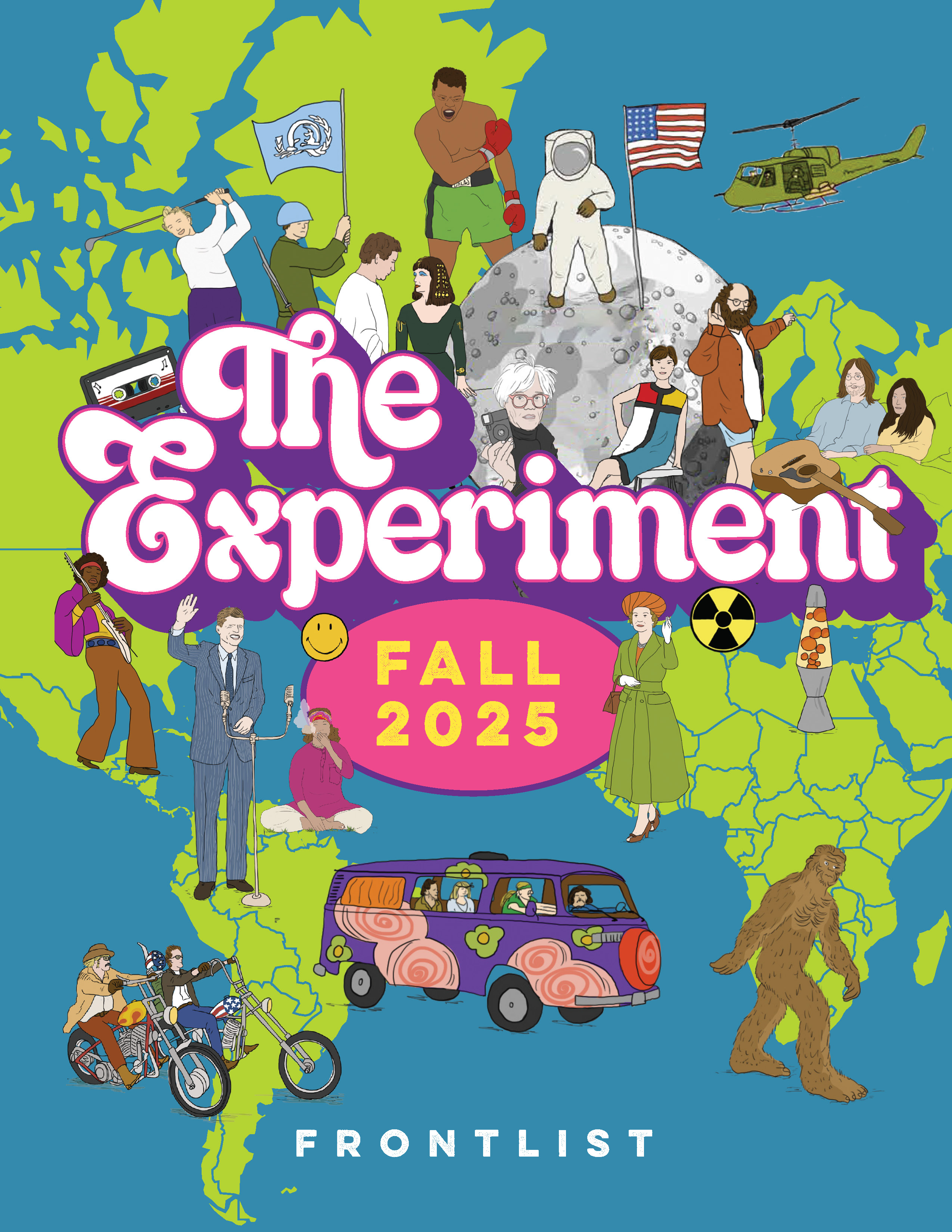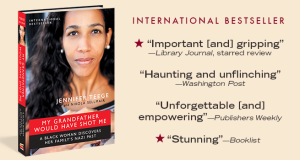 Earlier this year when we published My Grandfather Would Have Shot Me: A Black Woman Discovers Her Family’s Nazi Past, we thought, and hoped, that readers would respond to Jennifer Teege’s haunting story as strongly as we had. Jennifer Teege, a German-born black woman, was 38 when she happened to pick up a library book that revealed a horrifying secret that had been kept from her: she is the granddaughter of vicious Nazi commandant Amon Goeth, the villain so chillingly depicted by Ralph Fiennes in Schindler’s List. This discovery sends Jennifer on a quest to discover all she can about her family’s haunted history and her own identity. The book released in hardcover this past April to a fantastic response, receiving countless favorable reviews as its unbelievable message resonated with readers around the country.
Earlier this year when we published My Grandfather Would Have Shot Me: A Black Woman Discovers Her Family’s Nazi Past, we thought, and hoped, that readers would respond to Jennifer Teege’s haunting story as strongly as we had. Jennifer Teege, a German-born black woman, was 38 when she happened to pick up a library book that revealed a horrifying secret that had been kept from her: she is the granddaughter of vicious Nazi commandant Amon Goeth, the villain so chillingly depicted by Ralph Fiennes in Schindler’s List. This discovery sends Jennifer on a quest to discover all she can about her family’s haunted history and her own identity. The book released in hardcover this past April to a fantastic response, receiving countless favorable reviews as its unbelievable message resonated with readers around the country.
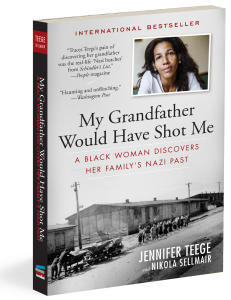
The media attention is continuing with a recent radio interview on PRI’s The World and an upcoming TV interview on C-SPAN Book TV’s Sunday Q&A series. We’ll be releasing the book in paperback in the Spring of 2016 (publishing in April!). The paperback comes with a brand new, beautiful cover and a reader’s guide perfectly suited to book clubs and reading groups. A version of the new edition’s reader’s guide is available on ReadingGroupChoices.com throughout August, but we’d also like to share it here in case your book club wants to read the book before the paperback release.
The following questions will spark thought-provoking discussion focused around the themes of race, family, trauma, history, adoption, and friendship addressed in the book:
1. The Washington Post describes this book as equal parts “memoir, adoption story, and geopolitical history lesson.” As Jennifer Teege researches and reflects on the Goeth family, Nazism, and her own adoption and childhood, which do you think affects her the most? Which was most interesting to you?
2. The book is presented from intertwined perspectives: Jennifer’s first person and Nikola Sellmair’s third-person. Discuss how the two authors complement and complicate one another’s views.
3. On crossing the boundary between fiction and history, Jennifer writes, “Slowly I begin to grasp that the Amon Goeth in the film Schindler’s List is not a fictional character, but a person who actually existed in flesh and blood” (7). How has your view of the Holocaust been shaped by popular culture? Has this book changed your perspective?
4. Jennifer has trouble reconciling her memory of a beloved grandmother with the truth of a woman who lived with Goeth and ignored his atrocities. What does Jennifer’s attitude towards Ruth, and Ruth’s towards Goeth, suggest about love? Is it possible to love one part of a person while rejecting another?
5. Monika Goeth, named for a father she never met, belongs to the first generation of descendants of Nazi perpetrators. She believes it was “Goeth’s story that shaped her identity” (99). How was her experience with the family history different from Jennifer’s? How will that experience change for Jennifer’s children? Can family trauma be passed down through generations?
6. After living in Israel, Jennifer has strong ties to its culture and people. She feels guilty about her family history and is reluctant to share it with her Israeli friends. Discuss her fears and their reactions. How would you have acted in Jennifer’s place, or reacted as her friend?
7. Jennifer describes her skin color as a “barrier” between her and Goeth (41) and as “good camouflage” (175) in Israel. Describing the African quarter of Paris, she says, “I had a sense of homecoming” (184). What role does race play in Jennifer’s quest for identity?
Interested in learning more? Read an author Q&A with Jennifer Teege.
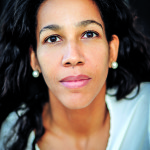 Jennifer Teege has worked in advertising since 1999. She lived for four years in Israel, where she became fluent in Hebrew. She holds a degree from Tel Aviv University in Middle Eastern and African studies. Teege lives in Germany with her husband and two sons. This is her first book.
Jennifer Teege has worked in advertising since 1999. She lived for four years in Israel, where she became fluent in Hebrew. She holds a degree from Tel Aviv University in Middle Eastern and African studies. Teege lives in Germany with her husband and two sons. This is her first book.
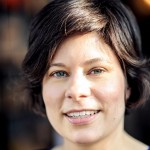 Nikola Sellmair graduated from Ludwig-Maximilians-University Munich and has worked in Hong Kong, Washington, D.C., Israel, and Palestine. She has been a reporter in Hamburg at Germany’s Stern magazine since 2000. Her work has received many awards, including the German-Polish Journalist Award, for the first-ever article about Jennifer Teege’s singular story.
Nikola Sellmair graduated from Ludwig-Maximilians-University Munich and has worked in Hong Kong, Washington, D.C., Israel, and Palestine. She has been a reporter in Hamburg at Germany’s Stern magazine since 2000. Her work has received many awards, including the German-Polish Journalist Award, for the first-ever article about Jennifer Teege’s singular story.


